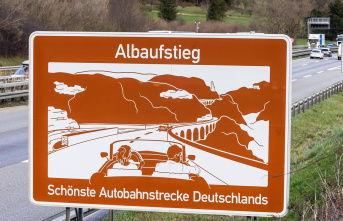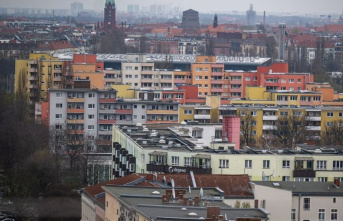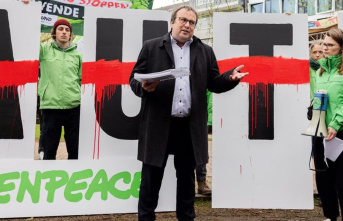The German GDP grew 0.6% in the past year, representing the lowest figure in the last six years, according to data published Wednesday by the German statistics office. The figure reflects the cooling of the large european economy, export-oriented and hit by the trade war and the global downturn.
Germany prevented last November, the recession in the minimum, which did not prevent the concern about the impact of the state of the German economy expanded throughout Europe.
Despite the cooling, the statistics office noted in a press release that the figure published is “an uninterrupted growth for ten consecutive years. This is the longest period of growth in the reunified Germany”.
The optimistic analysis of the last decade carried out by the office of statistics camouflages itself however a present and the recent past something less promising. In the past two years, the German GDP grew with a lot more strength [to 2.5% in 2017 and 1.5% in 2018] that in the past year. The media in the last ten years was an increase of 1.3% compared to 0.6% today.
The prospects of a Brexit with agreement and a potential slow-down in the commercial relationship between China and the united States could expect according to various analysts, an improvement for the German economy.
The German ministry of the Economy issued a statement yesterday in which he spoke of hopeful signs. “The phase of weakness in the industry is not overcome,” admitted at the time that indicated that “the trends sway in orders and a lower pessimism in the business climate are positive signs. The boom in construction continues”.
The bureau of statistics also highlighted that for the eighth consecutive year, Germany achieved a budget surplus, which amounts to eur 49.800 million euros. The surplus comes at a time of intense debate in Germany about the desirability of the policy of deficit zero that defends the Executive of Berlin. His detractors, among them the social democratic party, a minority partner in the coalition Government are asking however a massive plan of investment to modernize the crumbling infrastructure of the country and palíe the delay in scanning.
Since the Government does not consider that the time has come to put in place a large stimulus plan and highlight the increase in public investment. Just this week, announced a gigantic plan of ten years and 86,000 million to modernize the railway. Berlin wants to increase the use of rail as alternative to flying, in the framework of its plan to reduce the pollutant emissions.
last year, the growth was due largely to the consumption, which grew by 1.6% from the previous year. The investment in construction and in research and development experienced also a rise. The industry suffered a fall of 3.6%, due mainly to the decline in the automotive sector.
German exports continued to grow, but at a lower rate -0,9% compared to 2.1% the previous year. The contraction of exports is the result of the increasing difficulty faced by German manufacturers in a climate of global uncertainty, marked by trade tensions and the exit of Uk from the EU.
job Market
The industrial cooling contrasts however with the figures from the labour market, which reflect that for the first time an occupation of 45.3 million people, which means about 400,000 more than the previous year. The incorporation of workers into the market and immigration were able to compensate for the aging of the population and emigration.
From the economic institute Ifo considered that the weakness of the industry of time has not spread to other sectors of the economy. “Is what differentiates this downturn from the years 2011 to 2013, when Germany would be caught in the euro crisis”, explains Timo Wollmershäuser, chief of the economic situation of the institute Ifo. “Despite the fact that employment growth has slowed, household incomes have remained high [...] the increases in the wage agreements, the low taxation, as well as a rise in pensions and benefits for families with children have strengthened the purchasing power”, he added.
Date Of Update: 15 January 2020, 20:00







